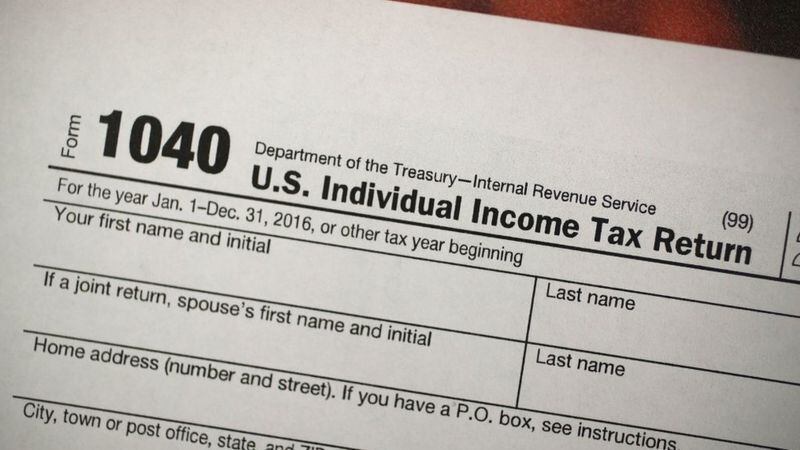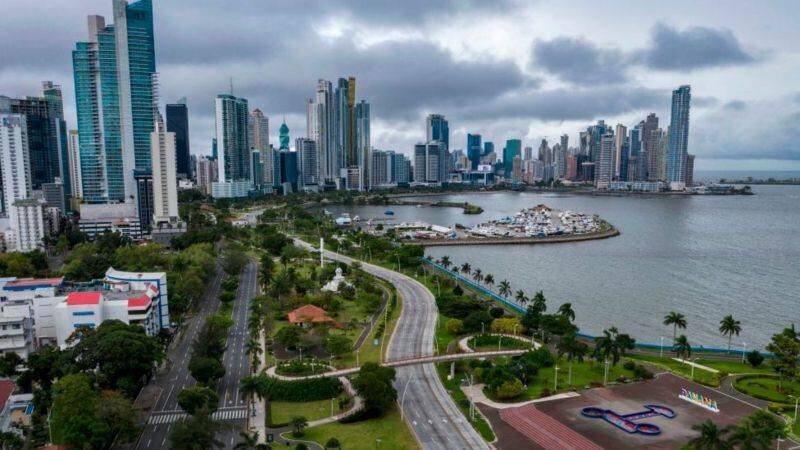The Pandora Papers they have captured the world’s attention.
The leak of 12 million documents on the fortunes of powerful people, including more than 330 politicians from 90 countries, has revealed the complex networks that are built in the business world to move money.
SIGHT: Pandora Papers: investigation reveals 35 world leaders hid their fortune to avoid paying taxes
The people named in the papers use companies offshore secrets to hide your wealth in tax havens. In some cases, tax avoidance schemes and even money laundering have been exposed.
- British Virgin Islands, the territory of the United Kingdom in the Caribbean that became one of the main tax havens
- Pandora Papers: What is known about the leak exposing the secret wealth of world leaders and billionaires
- Simple guide to understanding Pandora Papers, one of the biggest leaks in history
But what are tax havens, companies offshore and when does its use become a fraud?
These are some answers.
What is a tax haven?
A tax haven is a territory that offers foreign individuals and companies little or no tax burden in a politically and economically stable environment.
This is often combined with providing little or no financial information to foreign tax authorities.
The term “tax haven” always “smells bad, but the investments are legal” as long as they are declared, explained Daniel Lejtman, a public tax accountant, partner of the Lisicki & Litvin study in Buenos Aires, to BBC Mundo.
Individuals and companies that do not have their residence in a tax haven can take advantage of the regimes of these countries to avoid paying taxes in their countries of origin.
And at that moment is when it would become an illegal operation, because the countries of residence are going to demand that offshore accounts or companies that registered movements or profits abroad be declared, according to the experts.
Is it legal to have an account in a tax haven?
According to the experts consulted by BBC Mundo on whether it is legal to have an account in a tax haven, the answer is a resounding “yes”.
“It’s not illegal,” said Robert W. Wood, managing partner of the WOOD LLP law firm, a tax specialist, in San Francisco.
“It is also perfectly legal for a person to own a company abroad that simply maintains bank accounts or a foreign trust with accounts, shares …”, Wood said in relation to US citizens.
Lejtman opposes the same: “There is nothing illegal about opening an account abroad.”
So when is it illegal?
“What is illegal is having any of these types of accounts or companies without informing the authorities,” Wood clarifies.
“The illegal thing is that a person does not declare those funds or the results that these companies generate (as profits) in their resident countries”, explains Lejtman,
And this requirement is global.

“In all countries it is illegal for a taxpayer not to declare income in any other part of the world,” Wildo Moya, professor of Economic and Commercial Law at the Catholic University of Chile, explained to BBC Mundo.
It states that “in countries such as Chile, the US, Spain and Germany”, if the accounts or companies are not declared offshore and no taxes are paid, it is considered a “crime or offense that can end up in prison depending on the specific legislation”.
And why open an offshore account?
“The advantage of these places (tax havens) is that they do not provide information to third parties. And this is legal, ”Lejtman said.
And many of them do not require the declaration of where that money came from, unlike the rest of the countries that “each one sets certain conditions for foreigners to invest,” he added.
Another reason to open an account offshore it may be related to the economic problems of the countries.
“There may be a country with instability that leads a person to create society offshore or open accounts abroad to protect their money and this is not illegitimate ”, as long as it is declared, said Professor Moya.
But specifically, if a person wants to open an account offshore or form a company anywhere in the world “from a legal point of view, if everything is reported, there should be no problem,” summarized Wood.
The conflict of double taxation
A tax resident “has to pay taxes in the country for his local activities and for what he earns in another part of the world,” Lejtman said.
For this reason, there are bilateral agreements between countries with “mechanisms to avoid the international double tax,” he clarified.
In other words, the countries agree not to charge the same tax twice.
In this way, the taxpayer can excuse himself from paying a tax in his country for a gain earned abroad if he has already paid it.
The advantage that many seek to obtain in tax havens is that it is almost certain that they pay little or nothing in taxes.

And he also added that “there are agreements between countries to collaborate in matters of fiscal transfer.”
“The hedge funds (hedge funds) frequently use tax havens to avoid double taxation, ”Moya said.
What tax havens are there in the world?
Until February 2021, the European Commission (EC) had on its black list of “non-cooperative countries and territories for tax purposes” (tax havens):
- American Samoa
- Eel
- Dominica
- Fiji
- Guam
- Palau
- Panama
- Samoa
- Trinidad and Tobago
- US Virgin Islands
- Vanuatu
- Seychelles
However, the countries that can be considered “tax havens” for the EC may not be so for everyone, since as the experts explained to BBC Mundo, this depends on the exchange of bilateral tax information.
Panama was not considered a tax haven by Spain, for example, but after the Panama Papers scandal, the Central American country is currently on its blacklist.
- Pandora Papers in Chile: How does the uncovering impact President Sebastián Piñera?
- Chilean opposition agrees to present constitutional accusation against Piñera for Pandora Papers
- Pandora Papers expose tax havens in the United States
- Pandora Papers: the president of Ecuador acknowledges that he had “legitimate investments” abroad
- The person in charge of investigating tax evaders in Colombia appears in the Pandora Papers
.

:quality(75)/cloudfront-us-east-1.images.arcpublishing.com/elcomercio/OGIGEEJUUNFOLMOBW2ZAWYKK3Y.jpg)

:quality(75)/cloudfront-us-east-1.images.arcpublishing.com/elcomercio/QES3SBM2D5GSDLW2J7SYMLSFRE.jpg)
:quality(75)/cloudfront-us-east-1.images.arcpublishing.com/elcomercio/FVUOQ5FH65BXHDJVHJLS2XJEXI.jpg)
:quality(75)/cloudfront-us-east-1.images.arcpublishing.com/elcomercio/NLM74C5F6JANBLX4MIBYZPBPAM.jpg)

